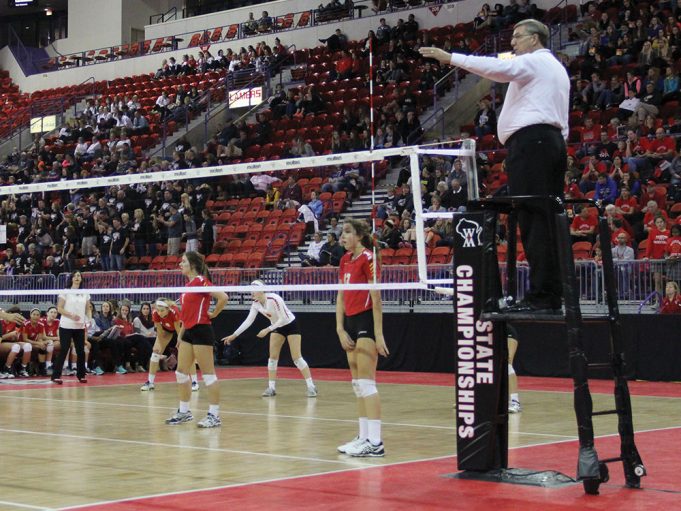A cartoon that appeared in another publication depicted a young boy on the department-store Santa’s lap. The youngster says to Kris Kringle, “I don’t care if I don’t get what I want. I just don’t want the other kids to get what they want.”
Sadly, that’s an attitude many officials have. When passed over for a big rivalry game, televised tilt or postseason assignment, they salve their wounds by rooting against colleagues. Instead of examining their own shortcomings or having an appreciation for another official’s hard work, they hope the other official fails.
Have an appreciation of another official’s hard work
Officiating is a competitive field of endeavor. Although there are shortages of officials across the country, there often are more officials than there are plum assignments. No matter how many are called, there are always fewer chosen. What many officials fail to realize is that, when one official fails, we all fail. Like it or not, we’re one big family.
When, in your dealings with coaches or administrators, you talk negatively about another official’s abilities or success, or criticize his or her performance in a particular game, you’re casting a negative light on yourself as well. You may reap a short-term emotional benefit from bad-mouthing another official, but in the long run what’s going to be remembered is that you made the comments and not the comments themselves. Even if what you’re saying is absolutely accurate, you’ll still come off as a blowhard.
Keeping negative comments to yourself is only one thing you can do to help the avocation. If you know an official has an important game coming up, an encouraging word from you can send that official into the game with confidence. All it takes is a brief email or verbal conversation. Comments such as, “You’ve worked hard and really deserve that assignment,” or, “I know you’ll do a great job,” can help curb any nervousness the official may feel.
If the official is from your association, you can show you’re the bigger person by giving your peer public recognition. Encourage the other members to watch the game on TV or to be there in person to lend moral support. Instead of grousing, “Why can’t I get a game like that?” you can give the fortunate official a scouting report to better prepare for the game. “I had them earlier in the season. They’re running a different offense than they have in the past,” gives the official a leg up on mental preparation.
If there is enough time before the game, offer to join him or her for a rules study session or volunteer to watch film of a previous game worked by that official. A second set of eyes can often see bad habits or coverage lapses that we can’t (or don’t want to) recognize.
Finally, when the big game is over, a follow-up conversation is in order. If the game was a stinker or the official had some problems, let a few days pass. But a heartfelt congratulations or a “hang in there” will be appreciated and remembered.
Then maybe next Christmas, you’ll find the dream assignment in your stocking.
What's Your Call? Leave a Comment:
Note: This article is archival in nature. Rules, interpretations, mechanics, philosophies and other information may or may not be correct for the current year.
This article is the copyright of ©Referee Enterprises, Inc., and may not be republished in whole or in part online, in print or in any capacity without expressed written permission from Referee. The article is made available for educational use by individuals.


















